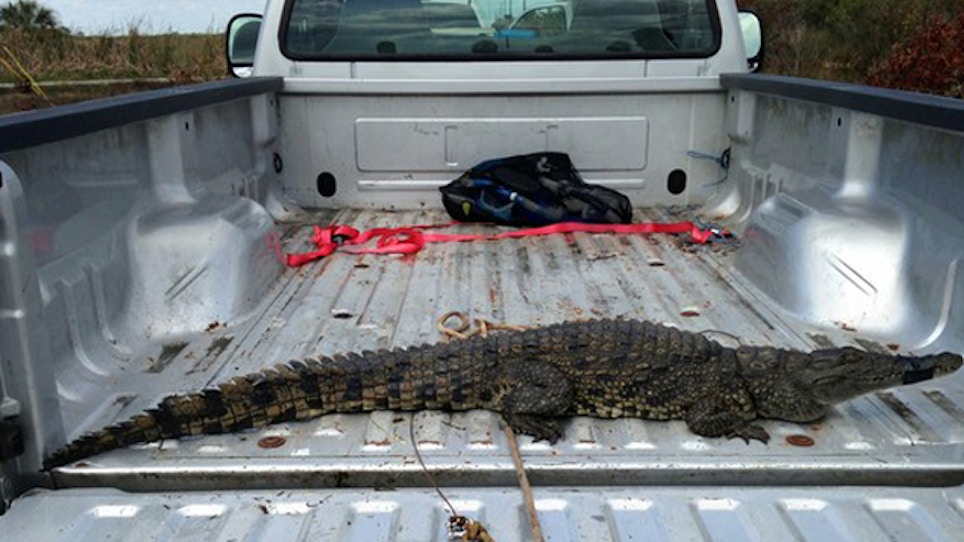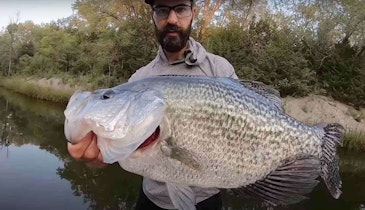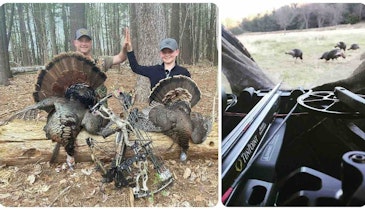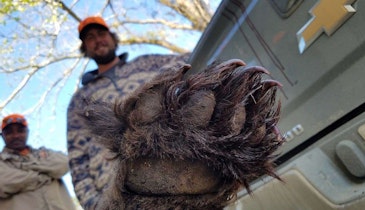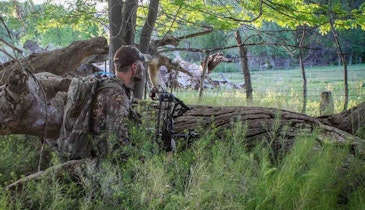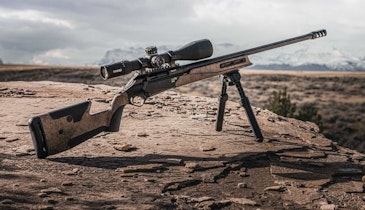EVERGLADES NATIONAL PARK, Fla. (AP) — A deadly young Nile crocodile has been captured alive in Everglades National Park.
The crocodile caught Sunday has eluded officials for nearly two years, said Florida Fish and Wildlife Conservation Commission spokesman Jorge Pino. He said the 5 1/2-foot, 37-pound croc likely escaped from a facility in Miami-Dade County with two others, which were captured in 2009 and 2012.
"We are conducting DNA sampling to determine if the crocodile recovered on Sunday is part of a stock of crocs being housed in southern Dade," Pino said.
Florida considers the Nile crocodile an exotic species, so their escape is considered a crime.
"So if we can prove through DNA that the animal that was caught belonged to that specific individual, then that individual will be facing charges," Pino added.
Wildlife officials said Nile crocs can grow up to 17 feet, some three feet longer than the Florida crocodile. The Nile crocodiles are more deadly, blamed for hundreds of attacks each year in Africa.
The Miami Herald reports the croc was spotted about a week ago by volunteers with a group named Swamp Apes, which searches for invasive Burmese pythons. They notified park officials.
"They initially identified it as a caiman and then we took a look and said, er, it looks more like a croc to us," said Frank Mazzotti, a University of Florida wildlife ecologist who assisted in the search.
A team from the University of Florida, wildlife officials and the Swamp Apes used nets to corner the crocodile in a canal in an area of the park that is closed to the public.
Once they had it trapped, they used a dart to tranquilize it, Mazzotti said.
It was taken to the Everglades Alligator farm in Homestead, where it will remain while officials determine its fate.
Wildlife biologist Joe Wasilewski captured a smaller Nile croc in 2012 at the Redland Fruit & Spice Park. That's about a quarter-mile from the location the first croc was captured in 2009.
Croc owners must have "a minimum 1,000 hours of working with the animals to even be considered for a permit," Wasilewski said.
When the crocs first appeared, the state wildlife asked federal officials to sign off on a "lethal take" to shoot it. Nile crocs are federally protected because they're disappearing from their native range and considered threatened internationally.
———
Information from: The Miami Herald, www.herald.com
